PA Update – Superior Court of Pennsylvania Affirms Judgment in Favor of Employer-Social Host
In Klar v. Dairy Farmers of America, Inc., ___ A.3d ___, 2021 Pa. Super. LEXIS 729 (Pa. Super. Dec. 17, 2021), the Pennsylvania Superior Court held that a defendant-employer cannot be held liable under a Dram Shop-style action. The employer organized and encouraged its employees to participate in a pay-to-play golf outing at a public course. Funds collected from the participating employees were used to offset costs and expenses, including food, alcohol, and greens fees. Id. at *1-2. An employee, also a named defendant in the action, became visibly intoxicated at the function, eventually obtaining a blood alcohol level of .23. Id. at *2.
As the employee was driving away from the golf outing, he collided with the plaintiff’s motorcycle, resulting in serious injuries.
The complaint asserted that the employer and employee were jointly and severally liable for the plaintiff’s injuries, and that employer was directly liable because it continued to furnish the employee with alcohol after he was visibly intoxicated and knew or should have known about his past alcohol history, including two prior alcohol-related crimes. Id. at *2. Employer filed for judgment on the pleadings, arguing that it could not be held liable to the plaintiff as a matter of law because it did not qualify as a licensee under the Pennsylvania Liquor Code and, therefore, could not be treated as a licensee for purposes of Dram Shop liability. Id. at *3-4. Further, the employer asserted that a social host cannot be held liable for serving alcoholic beverages to adult guests. Id. at *4.
Granting the employer’s motion for judgment on the pleadings, the trial court held that “payment of a fee in this case to [defray] the cost of the golf outing as a whole, with alcohol being only an incidental aspect of the fee which also provided for food and the golfing itself, without profit or other indicia of commercial sale of liquor, does not satisfy” the plaintiff’s burden. Id. at *4.
On appeal, the Superior Court noted that the Pennsylvania Supreme Court’s holding in Manning v. Andy, 310 A.2d 75 (Pa. 1973) (holding that the statutory phrase “any other person,” as found in the Dram Shop Act, did not encompass non-licensees in civil proceedings), precluded the Dram Shop claim. Succinctly put, the Superior Court held that the employer, as a non-licensee, “cannot be civilly liable for violating the standard set forth in Section 4-493(1).” Id. at *24.
Next, the plaintiff argued that the employer “obtained licensee status” because it charged fees prior to providing the attendees with alcoholic beverages. The plaintiff cited to Hinebaugh v. Pennsylvania Snowseekers Snowmobile Club, 63 Pa. D. & C. 4th 140 (C.P. Lawrence Co., August 14, 2003) suggesting it presented a similar factual scenario and should guide the Superior Court’s decision. In that matter, a club member purchased alcohol at the clubhouse while visibly intoxicated using a “punch-out card” purchased from the club. In that case, the club’s motion for summary judgment was denied because the trial court had found that the punch-card system constituted a sale which would have required the club to obtain a license from the Liquor Control Board. Again, the Superior Court looked to the holding in Manning where it cautioned against expanding civil liability under the Dram Shop Act to include non-licensees, regardless of whether money was exchanged for the alcoholic beverages, as this was a decision best left to the legislature. Id. at *25-27.
Finally, the Superior Court disposed of the plaintiff’s argument that the employer breached a common law duty by serving the visibly intoxicated employee alcohol by citing to the well-accepted proposition that a social host is not liable for serving alcoholic beverages to a guest of legal drinking age:
in the case of an ordinary able bodied man it is the consumption of the alcohol, rather than the furnishing of the alcohol, which is the proximate cause of any subsequent occurrence. . . . [T]here can be no liability on the part of a social host who serves alcoholic beverages to his or her adult guests.
Id. at *27-28 (emphasis added). The Superior Court held that the employer’s collection of money to cover fees and costs related to the outing were akin to the concept of a “collective purchase” of alcohol as opposed to remuneration. Therefore, it could not be held liable under any theory advanced by plaintiff and the trial court’s entry of judgment was affirmed. Id. at *30.
Overall, this opinion confirms that an employer or other social host that collects money from the guests to recuperate costs and expenses associated with the event cannot be held liable under a Dram Shop style claim, or under a general common law negligence theory. Notably, the Superior Court’s opinion does not seem to distinguish recuperating costs related to alcohol, food, or other event fees given the reference to the “collective purchase” of alcohol cases. However, because the Superior Court did not factually distinguish Hinebaugh, it should be cautioned that a purchase-like system (i.e., punch-out cards, tickets, etc.) for alcoholic beverages is still an issue wherein hosts should exercise caution when serving its guests.



